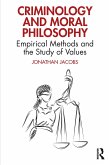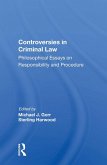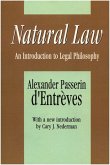This book argues that ignorance of law should usually be a complete excuse from criminal liability. It defends this conclusion by invoking two presumptions: first, the content of criminal law should conform to morality; second, mistakes of fact and mistakes of law should be treated symmetrically. The author grounds his position in an underlying theory of moral and criminal responsibility according to which blameworthiness consists in a defective response to the moral reasons one has. Since persons cannot be faulted for failing to respond to reasons for criminal liability they do not believe they have, then ignorance should almost always excuse. But persons are somewhat responsible for their wrongs when their mistakes of law are reckless, that is, when they consciously disregard a substantial and unjustifiable risk that their conduct might be wrong. This book illustrates this with examples and critiques the arguments to the contrary offered by criminal theorists and moral philosophers. It assesses the real-world implications for the U.S. system of criminal justice. The author describes connections between the problem of ignorance of law and other topics in moral and legal theory.
Dieser Download kann aus rechtlichen Gründen nur mit Rechnungsadresse in A, B, BG, CY, CZ, D, DK, EW, E, FIN, F, GR, HR, H, IRL, I, LT, L, LR, M, NL, PL, P, R, S, SLO, SK ausgeliefert werden.









